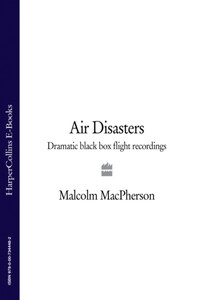Before the publication in 1984 of my book The Black Box I had called at the offices of the US National Transportation Safety Board (NTSB) in Washington, DC, on the unlikely chance that the Board made available to the public transcripts of commercial air transportation cockpit voice recordings (CVRs), which I knew about from commercial pilot friends who read them out of personal interest and had handed them on to me. My request that day surprised the Public Affairs officer who said that no member of the public had asked to see them before. He wondered out loud what anyone would want with them, as he led me over to thirty or forty transcripts that someone in the office had patiently typed out, copied and stacked up against filing cabinets, looking as if they were ready to be thrown out.
I told him that they fascinated me in a way I could not describe even to myself but their hold on me lasted long after I read them. Maybe they would interest other like-minded people if they were made available in book form. Come to think of it, he told me, he read the transcripts, too, and not for strictly professional reasons. He could not articulate his interest either, but we sat on the office floor and, from memory, he chose twenty of the transcripts that he thought would be of most interest to me. Before long I staggered out of the building under the weight of at least a score of the transcripts. As soon as possible I set about turning the pages into a form that would make sense to readers like me with no specialized knowledge of flying or of the mechanics of commercial aircraft and aviation. The Black Box, as a specialized book category, was born.
Now, nearly thirty years on, the aviation industry has changed remarkably, as anyone who flies knows. I must say that most of these changes are for the worst from the passengers’ perspective. Today, already cramped spaces in aeroplanes are smaller, meals are worse or in some cases nonexistent, delays are longer, cancelled flights are stacked up higher, rude and indifferent behaviour by officials seems almost routine, and more people like you and me want only a quick and merciful end to the experience of flying between home and destination that does not involve a crash. In 2007 passengers’ complaints to the US Department of Transportation increased by 60 per cent, which means that, for instance, a typical passenger from Washington Dulles Airport was angry enough with the service to complain once every day and a half. In an editorial in the spring of 2008 the Washington Post had this to say: ‘Air travel has gotten so bad these days that going to the airport requires either an exercise in sadomasochism or an abiding faith that everything will be okay. That faith seems to be shattered daily.’ Beneath the surface passengers are seething; to tell the truth, flying is no longer the convenient way to travel, but in America it is the only way, at least with gasoline prices inching up, train services starved of federal funds and bus travel nearly nonexistent. Bad as it is, we have no other choice but to fly.
That said, in one very important—the most important—respect, changes over the years in commercial air travel have been excellent for passengers: whenever we set out to reach a destination by air, we arrive. In other words, though flying might be miserable it is safe, pure and simple, and, remarkably, it is getting more so all the time. As if air safety were a warp zone of science fiction, safety managers for airlines and the government are today reaching beyond known weak links into the realm of ‘what might conceivably happen’ and are making changes for safety before trouble happens, so that passengers never have to experience incidents that did not have a chance to develop.
Indeed, there has been no major aircraft crash in the last seven years in the USA. That’s safety to bank on. Indeed, 2007 was a typically excellent year. With 4.65 billion








